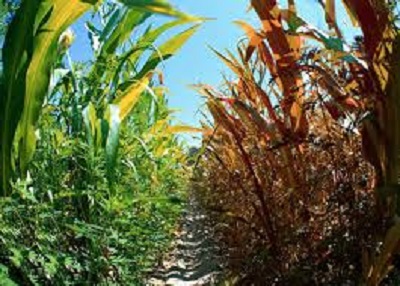Ground-level ozone is an air pollutant that harms humans and plants. Both climate and weather play a major role in ozone damage to plants. Researchers have now shown that climate change has the potential to significantly increase the risk of ozone damage to plants by the end of this century.
“The increased risk of ozone damage to vegetation is mainly due to rising ozone concentrations and higher temperatures in the future,” says Jenny Klingberg. “The most important effect on agricultural crops is premature aging, which result in smaller harvests with lower quality.”
Ozone is an atmospheric gas that is found at a height of 10-40 kilometres above Earth’s surface. Here the ozone layer protects against the sun’s ultraviolet rays and is vital for life on Earth. Ozone is also formed at ground level when car exhaust fumes react in the presence of sunlight. This ground-level ozone is an air pollutant that is toxic to humans. Plants are more sensitive than humans and ground-level ozone generates large costs in the form of reduced crop yields in agriculture and reduced forest growth.
Researchers have traditionally estimated the risk of ozone damage to plants based on the concentration of ozone in the ambient air. The negative effects of ozone on vegetation are more closely related to the uptake of ozone through the stomatal openings on the plant leaves. The study carried out by Klingberg is one of the first to use this method to estimate the risk of ozone damage to vegetation in the climate of the future.
“The results show that the risk of ozone damage to plants is great. Weather and climate affect both the concentration of ground-level ozone in the ambient air and to what degree the stomata are open.”
However, the risk of ozone damage is also affected by the carbon dioxide concentration in the air. Research indicates that the plants’ stomata are less open when the concentration of carbon dioxide increases.
“The models show that higher carbon dioxide concentrations in the air could mean that the risk of ozone damage to crops and deciduous trees will not increase,” says Klingberg. “But the magnitude of this effect is uncertain, especially for trees. If the effect of carbon dioxide on the stomata will turn out to be small, future climate change has the potential to significantly increase the risk of ozone damage to vegetation.”
Source: Science daily
N.H.Kh

